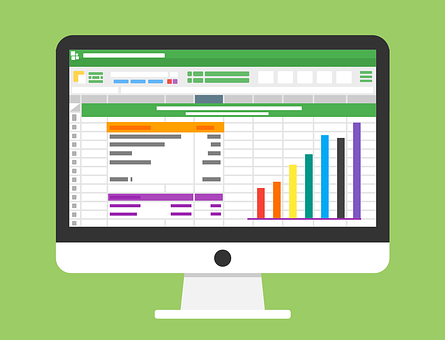More and more, regardless of what industry you work in, the distinction between an expert and an analyst is blurring. However, there are two types of business intelligence professionals that would be evident to anyone looking at your resume: subject matter experts (SMEs) and data analysts.
This article will explore the difference between these two positions, highlighting how each can help businesses grow through their expertise. Here at https://fomoconews.com/ has some more differences between subject matter expertise and data analytics.
Subject Matter Expertise (Expert): SMEs are typically thought of as having a deep understanding within a specific domain or industry that can’t necessarily be quantified by numbers or data.
This expertise is typically gained through years of experience, all the while gaining an understanding of their clients’ objectives and their business processes.
A subject matter expert would be found within industries such as healthcare, government, law enforcement, education, manufacturing, and financial services.
Any industry where opinions are essential to improving upon the client’s bottom line will see SMEs play a significant role.
The fundamental difference between an expert and an analyst is that an expert could be thought of as one who has hands-on experience with the client’s industry or business process.
An analyst can often come from outside of the client’s industry, and are typically more focused on data analysis to provide insights based on metrics rather than subjective opinions.
Analysts usually have a base understanding of the client’s industry or business process, but would not typically have hands-on experience.
This distinction is extremely important when dealing with SMEs because there could be a significant difference between how an analyst and an expert perceive the same information.
Data Analytics (Analyst): Data analytic professionals work to turn raw data into actionable insights that will allow organizations to make strategic and tactical decisions for their organization. Increasingly, data analytics professionals are becoming more and more skilled at producing strategic level insights by analyzing the right data using advanced statistical techniques to identify meaningful patterns within that data.
There are many reasons why they need to hire a Subject Matter Expert, but the main two are that they want someone who is intimately familiar with the subject at hand and can provide unbiased insights.
Data Analysts will have no problem with data collection or providing information on their findings for clients, but what they lack in knowledge or memory of past cases, they more than make up for in analytics and modeling skills.
This blog post discusses five key differences between these two roles to help you understand how each one contributes to each organization.

1.Subject Matter Expertise
A Subject Matter Expertise is a person who has attained a certain level of knowledge and expertise in the area that they are hired for. They have a deep understanding of a subject or a discipline and will be able to provide valuable insight into what is going on in business. This can be someone with an MBA, an executive, or just someone with a lot of life experience.
2.Data Analysts
Data Analysts are very similar to Subject Matter Experts in that they have the same “subject matter” or “discipline” exposure. What Data Analysts lack in knowledge, they make up for when it comes to data analysis and modeling skills.
A Data Analyst will be able to take the data and analyze it in a way that no one else can, using their extensive experience with Excel and other data analytics software.
3.Data Collections
Data Collection is usually done by Data Analysts or their team, but can also be done by Subject Matter Experts who are looking to prove a certain hypothesis or theory. Data collection should be comprehensive, thorough, and repeatable across multiple organizations to ensure that there are no biases in the information gathering process.
Whoever is tasked with this responsibility should have at least one member of their team that has some form of statistical background or experience to avoid bias in the methodologies used for collecting data.
4.Data Reporting
Reporting can be done in many different ways, with data analysis and modeling both being strong options. It may be more practical to use modeling or forecasting to report on an issue or topic, but there is always the chance that the wrong analysis was used.
Asking for Subject Matter Experts is a way of showing sophistication in your company’s business practices, which can make you seem credible when it comes to reporting on data.
5.Summary Reports
The final way that these two roles are different involves their ability to provide smart business solutions for clients that will help them with their decision making process. Subject Matter Experts are good at providing insight into the decisions that have already been made, but Data Analysts can step in and provide analysis that will help with future decision making.
They are able to forecast revenues, compile information about potential customers, and even isolate the best solutions for problems at hand.